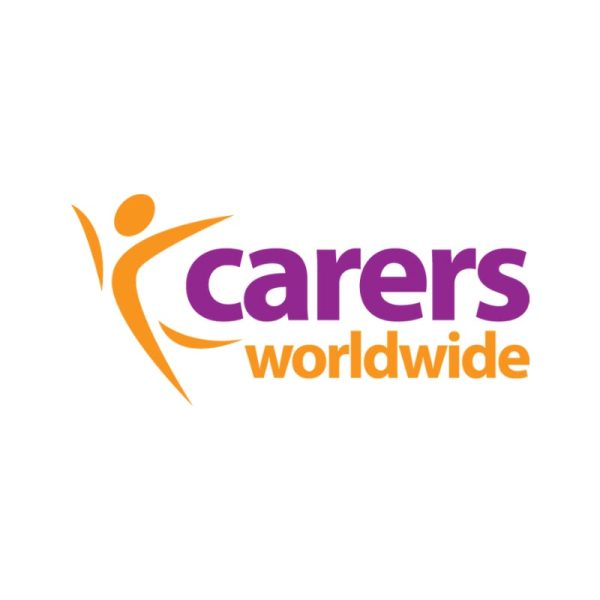
In 2021, The Foundation proudly partnered with Carers Worldwide following a successful pilot programme that supported 502 carers in Savar, Bangladesh. A grant of £140,274 was awarded to expand this model, aiming to support 1,008 unpaid family carers in improving their health and socioeconomic wellbeing:
The Carers Worldwide model is made up of five main fundamentals:
- Carers Groups
- Health Services
- Education, Livelihood and Training:
- Respite & Short Breaks
- Advocacy
Together with Carers Worldwide, we had set the following key targets to achieve using the aforementioned model:
• 85% of carers regularly attending local carers’ group meetings for practical and emotional support
• 75% of households living above the poverty line
• 70% of carers reporting improved physical and/or mental health
• 40% of carers feeling confident to advocate for their needs with government representatives
We’re thrilled to announce that every target was met and exceeded expectations. Each element of the Carers Worldwide model demonstrated the effectiveness of this partnership.
Carers Groups
Through the programme, 87% of carers regularly attended one of the 50 carers’ group meetings. These groups offered access to joint savings accounts, enabling many to start small businesses and achieve greater financial independence.
Health Services
During the project, 12 health camps were held, attended by 963 unpaid carers and their disabled relatives. Eighteen doctors and frontline health workers received training on carers’ specific needs, and strong connections were established with hospitals in Dhaka, empowering carers to access services independently. Additionally, 50 barefoot counsellors—unpaid carers trained to provide peer mental health support—were prepared to offer counselling, ensuring carers could receive guidance from those with lived experience.
Respite and Short Breaks
Seven Community Caring Centres are now operational, supporting 129 disabled children and 125 carers. These centres provide safe spaces for children who cannot attend school, offering care, therapy, and education, while allowing carers the time for respite and social or income-generating activities.
Education, Livelihood, and Training
Through this initiative, 425 unpaid carers received training in chosen income-generating activities, with 474 receiving funds to cover start-up costs.
Advocacy
Over three years, eight cluster-level committees, a district Carers Association, and a national Carers Alliance Bangladesh were established. These structures equip carers with advocacy skills, ensuring sustainable support well beyond the project’s end.
The 1,008 carers involved reported notable improvements in physical and mental health, financial stability, confidence, and reduced social isolation. These benefits are expected to endure, thanks to the sustainable support systems now embedded within the community, such as Carers Groups and Community Caring Centres. While we are incredibly proud of the statistical outcomes, it’s the individual stories of empowerment and progression that have made this project truly remarkable. One such example is Kakoly’s story.
Kakoly Rajbangshi is a 25-year-old unpaid carer to her son, Choyon, who has cerebral palsy. Kakoly got involved with the programme and the Centre for Disability in Development (CDD) when a survey team visited her home. Intrigued by their services, she asked more about their work and expressed a desire to get involved. Kakoly joined the Monodia Carers self-help group and quickly rose to the position of cashier and trained barefoot counsellor. She actively communicated with other carers, encouraged timely participation in meetings, and conducted counselling sessions both over the phone and in person. She continues to thrive in this role and now visits the homes of other carers to offer support and guidance.
Kakoly’s family has struggled with financial instability. Her husband worked as a fisherman, but their income was insufficient to meet all their needs, especially with Choyon’s treatment. The Programme and CDD provided Kakoly with training in small business trade and handicrafts. She was then able to start her own business crafting and selling embroidered quilts, earning around BDT 3,000 per month, which contributes significantly to her family’s finances.
Kakoly has also struggled with her own physical health issues, including knee and back pain. Through the carers project, she has now received medical treatment at local health camps. Now, in her capacity as a barefoot counsellor, she provides mental health support at the camps, helping to reduce loneliness and anxiety among other carers.
Kakoly and the other carers regularly advocate for disability pensions and ID cards, and their persistent efforts have resulted in tangible support from government officials. Her leadership within the carers movement has not only brought positive changes to her own life but has also set an inspiring example for others.
Kakoly’s story is just one of thousands the Foundation is delighted to have helped facilitate, and we look forward to seeing the continued success of those who were a part of this programme.

